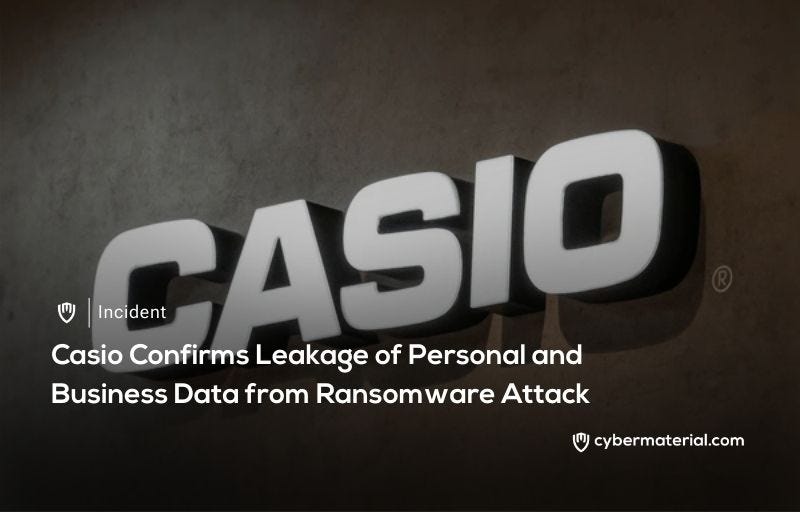
Casio, a leading electronics manufacturer, confirmed a ransomware attack in October 2024 that resulted in the exposure of sensitive personal data belonging to employees, business partners, and custom…

Casio, a leading electronics manufacturer, confirmed a ransomware attack in October 2024 that resulted in the exposure of sensitive personal data belonging to employees, business partners, and custom…